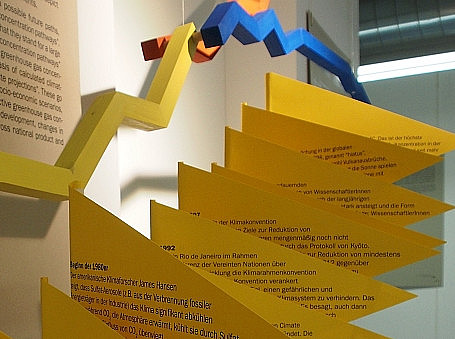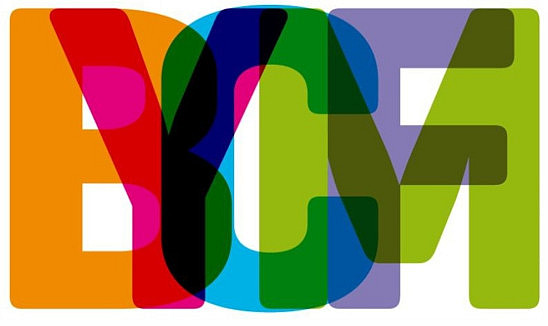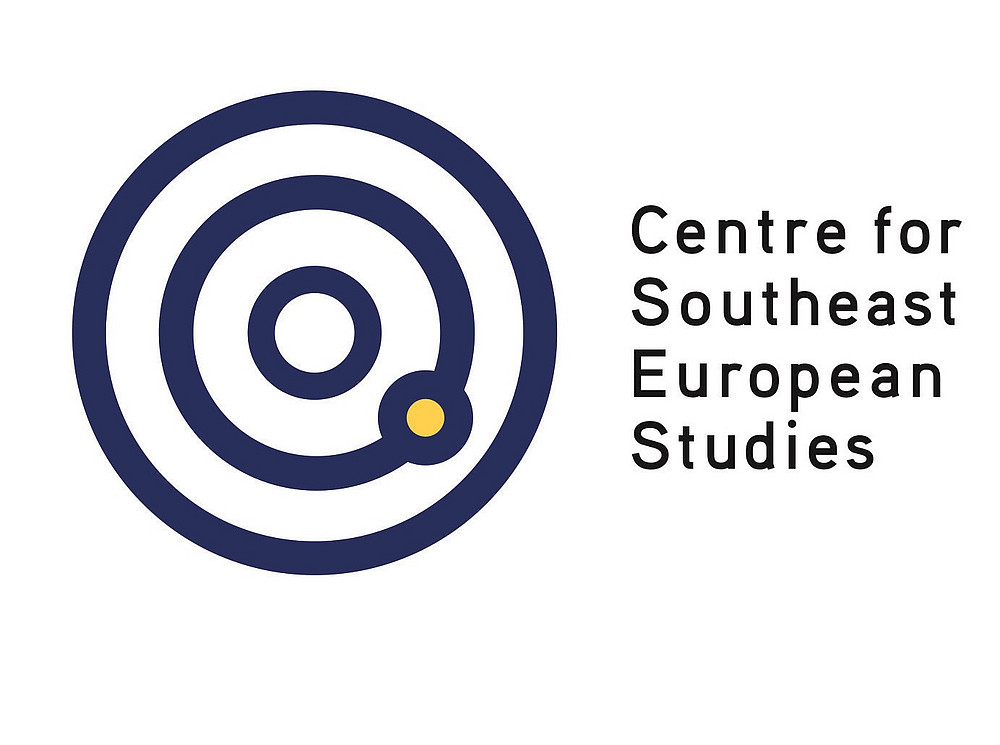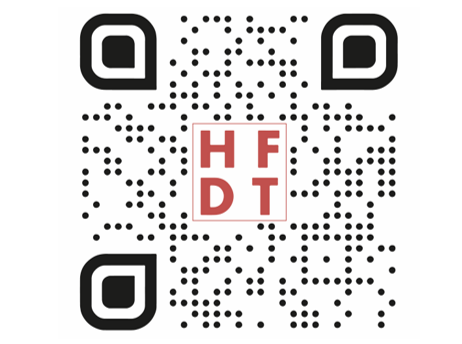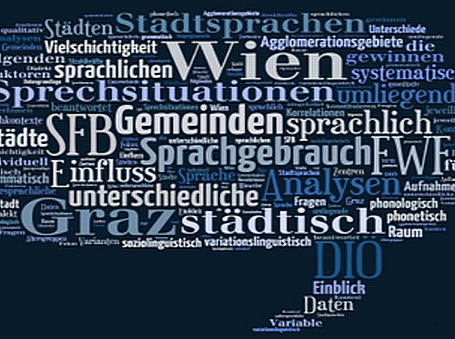General Information
Supported by the RCC, member consortia offer doctoral candidates a research-intensive environment with additional training elements that go beyond the standard curriculum. Targeted international recruitment in combination with financial support, high-quality specialist training, mobility support and additional qualification opportunities in specialist and interdisciplinary key qualifications form the cornerstones of the training.
Member consortia are internationally oriented groups of doctoral candidates and supervisors (faculty) researching an overarching topic. A consortium consists of 10 doctoral candidates (recommended number), at least 50% of whom are financed by third-party funds.
Consortia ensure regular academic exchange between faculty members and doctoral candidates. They promote international contacts of their doctoral researchers as well as their participation in the activities of the scientific community. In addition, doctoral candidates are given opportunities to acquire transferable skills, particularly through the Research Careers Campus.
Groups of doctoral candidates and faculty members who do not yet meet the requirements for admission to the Research Careers Campus as a consortium can apply for candidate status.
RCC candidate consortia can receive up to € 5,000 as seed funding for the preparation of third-party funding applications. The candidate status is awareded exclusively by invitation for application. However, interested doctoral groups can contact the Research Careers Campus (rcc(at)uni-graz.at) for a preliminary conversation. In the case of an invitation the doctoral group has to the form for the application for candidate status.
Before contacting the RCC, please read the directives for the candidate status.
An overview of all RCC Consortia can be found below
Accounting, Reporting and Taxation
DART is a joint doctoral program of two major Austrian Universities (in Graz and in Vienna), that specializes in the area of accounting, reporting, and taxation with a focus on economics-based research, applying quantitative research methods. The program is fully taught in English and covers all areas of accounting research.
Climate Change - Uncertainties, Thresholds and Coping Strategies
Anthropogenic climate change has emerged as one of the main areas of concern in the 21st century. Strategies to deal with climate change and its possible consequences are imbued with uncertainty. The DK attempts to reach a better understanding of climate change uncertainties and, while doing so, to develop criteria for thresholds, namely critical points where a small change in a system suffices to induce a qualitative change in the system or in different systems. These considerations will be connected with the development and evaluation of possible strategies to cope with climate change.
Discrete Mathematics
The programme's interpretation of Discrete Mathematics is rather wide, even if comparing the research areas of the first funding period with the second one reveals that it now has a stronger focus on core themes of discrete mathematics, due to changes in the faculty.
The programme covers many topics from pure and also applied mathematics: classical elds such as combinatorics, number theory, graph theory, probability theory and group theory, as well as more themes
which look towards computer science, like computational geometry and discrete optimization.
Theoretical Particle Physics
The main scientific objective of the Doktoratskolleg (DK) “Hadrons in Vacuum, Nuclei and Stars” is a comprehensive understanding of Quantum Chromodynamics (QCD), the fundamental theory of strongly interacting particles. The topics that were addressed in the first and second funding period and those which will be on the agenda of the third period range from rather fundamental questions of QCD to hadron phenomenology, not to forget necessary methodological developments. The more fundamental issues are connected with the QCD phase diagram. The transition from confinement to deconfinement and the question of chiral symmetry restoration are of particular interest. The properties of QCD in different phases will also be studied.
Optimization and Numerical Analysis for Partial Differential Equations with Nonsmooth Structures
The main focus of the international research training group DK W1244 is the development of novel analytical and numerical methods for optimization, control, and estimation in problems described by partial differential equations (PDEs), where different kinds of non-smooth structures are involved.
Resonant Self—World Relations in Ancient and Modern Socio-Religious Practices
The IGS aims at comparing the self—world relations that are established, reflected and sustained in socio-religious practices in Mediterranean antiquity with those in the modern period. Using the concept of 'resonance' the relations are understood as a two-way ‘loaded’ connection. The projects from Sociology, Theology and Ancient Studies confront different methodological traditions and periods to open sociologically oriented and historically funded perspectives on self-world relations.
Ecology and Evolution in Changing Environments
The EECE consortium aims to investigate adaptations of both ecosystems and organisms (fungi, plants, animals) to environmental changes in terms of seasonal fluctuations as well as climatic changes. With state-of-art research tools and approaches, we will study short-term reactions as well as long-term changes and develop new bio-monitoring methods including those implemented in anthropogenic niches.
Speaker
Vice-Speaker
Synergies in Business Law
The Research Consortium is based on the doctoral programme “Synergies in Business Law”. It focuses on practice-relevant and under-researched synergies between insolvency, corporate and financial law. An interdisciplinary approach is applied also during the supervision.
NanoGraz: Functional Nanostructures in Physics, Chemistry and Life Siences
Crucial processes in physics, chemistry and biosciences take place on the nanometer scale, being interdisciplinary by themselves. In our consortium, we investigate the phenomena which occur within these dimensions with experimental techniques as well as the theoretical approaches.
Molecular Metabolism (MOBILES)
The doc.fund “Molecular Metabolism” (MOBILES) is an international PhD training program for outstanding students in the molecular biosciences. The consortium aims to provide scientific training to exceptional young scientists in different areas of molecular biology, infection biology and biochemistry. PhD projects address questions relevant to diet- and age-related changes in metabolism, regulation of lipid metabolism and bacterial modulators of metabolism using diverse model organisms [bacteria, yeast, cell culture, fly and mouse (BYCFM)].
Dipl.-Biol. Dr.rer.nat. Kristina Schild
Institute of Molecular Biosciences
Phone: +43 316 380 - 5496
E-mail: kristina.schild(at)uni-graz.at
Web: https: //docfunds-molecular-metabolism.uni-graz.at/de/
Sustainable Biocatalysis
PhD students in the RCC consortium "Sustainable Biocatalysis" engage in interdisciplinary research to develop innovative biocatalytic methods that utilize enzymes for environmentally friendly chemical transformations. The consortium brings together research groups specialising in biocatalytic synthesis, structural biology, and photobiocatalysis to address the challenges of designing more sustainable processes. We study enzyme structures and mechanisms to enhance the efficiency, stability, and selectivity of biocatalysts. Our work in photobiocatalysis further pushes the boundaries of the field by harnessing light-driven reactions to activate enzymes, creating novel, energy-efficient pathways for sustainable biocatalytic processes.
Mag. Dr.rer.nat.
Christoph Winkler
Institute of Chemistry
Web: The Elk Crew-Biocatalysis at the University of Graz (uni-graz.at)
ESOE - Europeanization Processes in Southeastern Europe
The Consortium Europeanization Processes in Southeastern Europe – ESOE – is based on the PhD Program Southeastern Europe that was established in 2013. The Program's main goal was to significantly enrich state-of-the-art research in the field of South East European Studies with innovative results as well as to support doctoral research at the University of Graz with a focus on Southeastern Europe. Concrete analytical goal of the Consortium is to speed up innovations particularly in the fields of interdisciplinary, ideology-critical and historical-critical Europeanization research. The Consortium faculty consists of twelve members with ten different disciplinary backgrounds. In addition to the excellence and interdisciplinarity of the research and teaching program, internationalisation is one of the central tools of the Consortium. The Consortium implements international research and teaching standards, gathers international students and international faculty members, facilitates study and research trips to other universities, as well as guest lectures of internationally distinguished experts and guest research fellows. The program is gathering doctoral researchers of the University of Graz from the fields of History, Political Science, Anthropology, Literature, Gender Studies, Economics, Law, Sociology, Theology, and Human Geography. The Consortium's program is based on regular classes including semester retreats, as well as on regular joint PhD-classes with different PhD-groups from other parts of Europe.
Complexity of Life
The consortium studies complex living interaction networks. Understanding complexity and interactions within and between components of living systems prepares for coming changes in the biosphere and sociosphere. The methodology used includes optimization, decision theory, game theory, network theory, systems analysis, simulation and other computational methods.
Biomolecular Structures and Interactions
BioMolStruct, “Biomolecular Structures and Interactions", is an international PhD training program and assembles a group of researchers from 3 universities in Graz - University of Graz, Medical University of Graz and Graz University of Technology. The PhD program sustains specialized education in integrative structural biology with a solid experimental and theoretical background on dynamics of biomolecules using molecular biology, biophysics and structural biology. It provides challenging research projects where the integration of complementary structural biology techniques enables functional studies of challenging biological questions involving, for example, antibodies, lipid vesicles, protein-lipid interactions, transporters, secretion systems, signaling proteins and large enzyme complexes.
HFDT - Human Factor in Digital Transformation
The consortium “Human Factor in Digital Transformation” (HFDT) focuses on two main topics:
- the human-centered approach in an increasingly technological environment ("SSH-->ICT"); and
- the use of information technology in research ("ICT--> SSH").
In order to lend weight to the topic in scientific and social discourse, a group of young HFDT-researchers at the top level with interdisciplinary expertise is to be established in the international community. Particular importance is attached to the staff, which includes researchers from the humanities (philosophy, psychology, educational sciences), the social and economic sciences (sociology, economics, business administration), the data sciences (BANDAS, SIS, ZIM) as well as the normative disciplines (theology, law, ethics).
The core is the integration of doctoral students in an intensive research-related discussion and cooperation context, e.g. the joint organisation of scientific events and project proposals, joint publications or seasonal schools. In "Methodology Labs", the extent to which discipline-specific methodologies can be usefully applied in other disciplines is tested experimentally. The researchers are also called upon to discuss the major societal issues of the digital transformation - each from the perspective of their sound professional expertise - together at an international level and to develop proposals for solutions.
The consortium is connected to the interdisciplinary research network.
Mountain Knowledge: Climate - Water - Risk
Mountains are a complex landscape form of the earth, which occupy only a smaller part of the earth's surface in terms of area, but have a great influence on atmospheric processes (and thus the climate), on the water cycle, on the biosphere, on many relevant natural hazards and thus on humans. Because of atmospheric circulation and its importance for the water balance, the importance of mountains goes well beyond their actual size. Precisely because of the complexity of the interconnected processes, increased cooperation between geology, geomorphology, hydro(geo)logy, biology, and climatology is needed. At the same time, our knowledge about mountains is lower than for other regions of the Earth. The poorer process understanding for mountain regions also results in lower performance of models/model simulations and thus poorer prediction. The consortium "Mountain Knowledge: Climate - Water - Risk (Moledge)" aims to improve the understanding of processes and systems and their changes due to climate change as well as risks for humans in mountain regions with a threefold focus:
(a) processes of mountain formation and natural hazards.
b) climate change in mountain regions and its consequences in different regions of the Earth
c) changes in the cryosphere in mountain regions, water cycle and resulting risks.
Variationist Linguistics and Sociolinguistics - German in Motion
The common thematic frame of the consortium is based on the wide spectrum of variation and varieties of the German language with a special focus on Austria. This diverse linguistic field will be analysed in detail from different linguistic perspectives, such as variationist linguistic, language contact, multilingualism and sociolinguistic research.
Molecular Enzymology
The Consortium Molecular Enzymology aims to provide outstanding doctoral training in the molecular biosciences and bioorganic chemistry. This international program is interdisciplinary in nature and integrates research activities of scientists from the University of Graz and the Graz University of Technology.
Metabolic and Cardiovascular Disease (MCD)
The doctoral college "Metabolic and Cardiovascular Disease" (DK-MCD) is a joint educational program of the Medical University of Graz and the University of Graz. The faculty offers a multidisciplinary graduate training program and thesis projects in the research areas of “New concepts and technologies for studying metabolic and cardiovascular diseases”, “Lipid-associated disorders”, “Cancer and lipid metabolism”, and “Cardiovascular disease”.
The interdisciplinary educational program covers molecular biology, biochemistry, cell biology, metabolomics, proteomics, physiology, pharmacology, pathology, and clinical medicine. Thus, the DK-MCD provides enthusiastic students with a high-level education in areas of highest relevance to biomedicine. The well-balanced faculty of leading scientists and young, but already well-established researchers, contribute to the educational initiative by their dedication to student training and by their scientific background in both basic research and clinical medicine. At the same time, our faculty is sufficiently diverse to encourage and enable students to enquire beyond the focus of their own research.
The DK-MCD provides a challenging PhD educational program that comprises major topics in metabolic and cardiovascular disease from basic to clinical research. It aims at offering a high-level education to ensure that DK-MCD alumni are well-prepared for successful careers in biomedical and life sciences.
Dr.rer.nat. Bakk.rer.nat. MSc.
Sabrina Zimmermann
Institute of Molecular Biosciences
Phone: +43 316 380 - 1903
E-mail: dk-mcd(at)medunigraz.at
Web: https: //www.medunigraz.at/DK_MCD/

